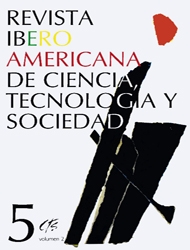On the reproduction of persons:
The ethics and technology of cloning
DOI:
https://doi.org/10.52712/issn.1850-0013-1019Keywords:
cloning, ethics, metaphysics, personhood, personalistic organicismAbstract
This article specially examines ethical problems settled by cloning human beings from the perspective of personalistic organicism -a philosophical position inspired by Alfred North Whitehead’s work. Firstly, it sketches out the scene within which human cloning is a realizable technological possibility, and describes the reactions that it prompts. Secondly, it analyses different models under which to think of human clones. Particularly, it discusses metaphysical presuppositions that underlie both attribution as well as denial of personhood to human clones. Finally, it presents the philosophical perspective of personalistic organicism, and argues in favour of different reasons that we do have to treat human clones as complete person.
Downloads
References
CHALMERS, David J. (1996): The Conscious Mind: In Search of a Fundamental Theory, New York, Oxford University Press.
DENNETT, Daniel C. (1995): “The Unimagined Preposterousness of Zombies,” Journal of Consciousness Studies, vol. 2, no. 4, pp. 322-326.
FERRÉ, Frederick (1995): Philosophy of Technology, Athens, Ga., The University of Georgia Press.
FLANAGAN, Owen y Thomas POLGER (1995): “Zombies and the Function of Consciousness”, Journal of Consciousness Studies, Vol. 2, No. 4, pp. 322-326.
NAGEL, Thomas (1974): “What is it Like to be a Bat?”, Philosophical Review, Vol. 4, pp. 435-450.
SEARLE, John R. (1997): “Consciousness & the Philosophers”, a review of Chalmers, op. cit., in The New York Review of Books, March 6, p. 48.
WILSON, Patricia (1997): “U.S. Ethics Panel Urges Ban on Human Cloning,” Reuters Limited, 8 de junio.
Downloads
Published
How to Cite
Issue
Section
License
Copyright (c) 2025 CC Attribution 4.0

This work is licensed under a Creative Commons Attribution 4.0 International License.
All CTS's issues and academic articles are under a CC-BY license.
Since 2007, CTS has provided open and free access to all its contents, including the complete archive of its quarterly edition and the different products presented in its electronic platform. This decision is based on the belief that offering free access to published materials helps to build a greater and better exchange of knowledge.
In turn, for the quarterly edition, CTS allows institutional and thematic repositories, as well as personal web pages, to self-archive articles in their post-print or editorial version, immediately after the publication of the final version of each issue and under the condition that a link to the original source will be incorporated into the self-archive.











